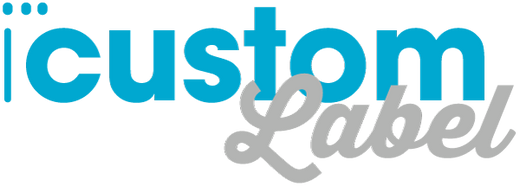How to Design and Print Custom Labels for Your Business
How to Design and Print Custom Labels for Your Business
In today’s competitive market, the smallest details can make the biggest impact. Custom labels not only showcase your brand but also help with product identification, compliance, and customer engagement. Whether you're in retail, food & beverage, cosmetics, or e-commerce, knowing how to design and print custom labels for your business is essential to staying ahead.
In this guide, we’ll walk you through everything you need to know—from design tips and material options to printing methods and vendor recommendations.
Why Custom Labels Matter for Your Business
1. Boost Brand Recognition
Your label is often the first impression your customer has with your product. A well-designed custom label communicates professionalism, personality, and value.
-
Display your logo, brand colors, and typography
-
Communicate your story or mission
-
Build consistency across product lines
2. Enhance Packaging Appeal
Aesthetic appeal drives sales. Custom labels elevate the appearance of packaging, helping products stand out on shelves or in shipping boxes.
-
Match your industry vibe: rustic, modern, luxury, minimal
-
Incorporate textures like matte, gloss, or foil
-
Use unique shapes and sizes
3. Meet Compliance Requirements
Certain industries require specific labeling—especially food, supplements, and cosmetics.
-
Ingredient lists, nutritional facts, allergen info
-
Barcode and SKU numbers
-
QR codes or regulatory info
4. Improve Customer Experience
Clear, informative labels make products easier to understand and trust. Good labels:
-
Explain product use or instructions
-
Include reorder info or websites
-
Use scannable tech like NFC or QR codes
Step 1: Define Your Label's Purpose
Before diving into design, ask yourself:
-
What is the label going on? (Bottle, box, bag, jar, etc.)
-
Will it be used indoors or outdoors?
-
Should it be waterproof, scratch-resistant, or removable?
-
What information needs to be included?
Understanding the function helps guide your design and material choices.
Step 2: Choose the Right Label Material
Different label materials serve different needs. Here are a few popular options:
Paper Labels
-
Ideal for dry goods or products with limited handling
-
Budget-friendly and eco-conscious
-
Great for wine bottles, coffee bags, or shipping labels
Vinyl & BOPP (Polypropylene)
-
Durable and waterproof
-
Best for food, beverage, or beauty items
-
Withstands refrigeration and moisture
Clear Labels
-
Sleek and minimal look
-
Works well for clear packaging
-
Allows product color to show through
Foil & Embossed Labels
-
Adds luxury and depth
-
Often used for premium products, candles, or cosmetics
Step 3: Design Your Custom Label
Designing is where creativity meets functionality. Keep these tips in mind:
1. Use Brand Guidelines
-
Incorporate your logo, colors, and fonts
-
Keep a consistent tone and style
2. Prioritize Readability
-
Use contrasting text and background colors
-
Ensure important info like ingredients or expiration dates is legible
3. Add Unique Elements
Custom illustrations or patterns
QR codes leading to your website or social media
Taglines or stories
Need help with design? iCustomLabel offers easy-to-use design tools and templates.
Step 4: Choose a Label Shape and Size
Your product shape and label location determine the ideal label dimensions. Popular shapes include:
-
Circles and ovals (great for lids and jars)
-
Rectangles and squares (ideal for boxes, pouches)
-
Custom die-cut shapes for a unique look
Always test a sample to ensure a snug fit and appealing appearance.
Step 5: Decide on a Printing Method
Printing choices impact durability, color vibrancy, and budget:
1. Digital Printing
-
Perfect for small runs or frequent updates
-
Full-color, high-quality results
-
Fast turnaround
2. Flexographic Printing
-
Cost-effective for bulk orders
-
Great for simple, repetitive designs
-
Longer lead times
3. Thermal Printing
Common for barcodes and shipping labels
Best for variable data or on-demand needs
For professional, high-quality custom printing, check out iCustomLabel’s printing services.
Step 6: Apply Labels Like a Pro
Application can make or break the final look. Here’s how to get it right:
-
Clean the surface before applying
-
Use label applicators for bulk production
-
Apply pressure evenly to avoid bubbles or wrinkles
Where to Print Your Custom Business Labels
If you’re ready to bring your designs to life, work with a trusted vendor like iCustomLabel.
Why Choose iCustomLabel?
-
Wide range of materials, shapes, and finishes
-
Fast shipping and easy online ordering
-
Low minimums and bulk discounts
-
Custom design support
You can also learn more about label design best practices at Avery, a respected authority in the label printing space.
Summary
Custom labels enhance branding, packaging, and customer experience
Choose from paper, vinyl, foil, and more
Design with readability and consistency in mind
Pick the right printing method for your needs
Order custom labels at iCustomLabel
Learn more from trusted resources like Avery








Leave a comment